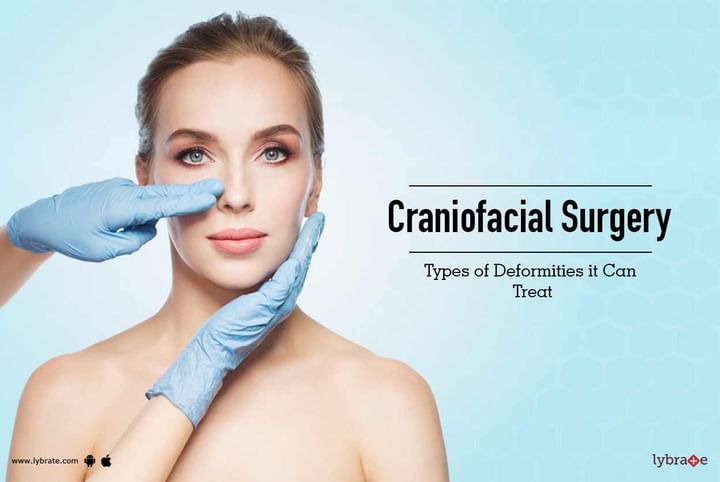Craniofacial Surgery - Types of Deformities it Can Treat
Craniofacial surgery is a surgical procedure that deals with problems related to skull, face, jaws, neck etc. It involves surgical skills related to otolaryngology, plastic and maxillofacial surgery. This line of treatment involves bone manipulation and is not specific to any tissue. A Craniofacial surgeon often deals with organs such as muscle, bone, skin, and teeth.
Some of the common defects addressed by a craniofacial surgeon include facial fractures, Crouzon's Syndrome, craniofacial clefts, hemifacial microsomia and Treacher Collins Syndrome. A surgeon from this discipline undergoes training in otolaryngology, maxillofacial surgery and plastic surgery.
Here is a list of skull deformities that craniofacial surgery is capable of addressing:
1. Scaphocephaly: This is a disorder where the metopic suture is fused prematurely. This suture covers the front and back of the head. A shape deformity of this structure can result into a triangular and pointed forehead. This is found in 2.8 babies in a sample size of 10000 births. This tops the list of craniofacial surgery.
2. Trigonocephaly: The metopic suture gets prematurely fused in this type of conditions. The metopic suture lies in the forehead and premature fusion results in the forehead becoming pointed and triangular. The head appears as flattened from one side. This condition is witnessed in 1 out of 10000 births.
3. Brachycephaly: This is a condition where both the coronal sutures are fused permanently. The head appears high and wide when a person gets affected with this condition. This occurs in 1 out of 20,000 births.
4. Scaphocephaly: This is a condition where the sagittal suture is fused. This leads to non-growth of the skull in the perpendicular direction. This results in the head to be pointed and long. If the condition gets diagnosed within 6 months of the birth, the same can be rectified by opening the suture surgically.
Surgical procedure
In any case, where there is any involvement of the forehead, a procedure known as the front-supraorbital advancement is deployed to correct deformation of head shape. This procedure is typically performed at a younger age so that the brain get enough time and space to grow correctly. This also ensures that skull refrains from growing abnormally. This procedure moves both the skull and the eye socket forward.
Other forms of craniofacial surgery:
1. Plastic surgery: Plastic surgery deals with alteration, restoration, and reconstruction of body parts. Some of the surgical procedure includes microsurgery, burn surgery and hand surgery.
2. Maxillofacial surgery: Oral and maxillofacial surgery deal with diseases related to jaws, neck, head and other soft and head tissue of the mouth and jaw.
3. Orthognathic surgery: This form of surgery addresses problems of the face and the jaw which is related to growth, structure skeletal disharmonies and TMJ disorders.



+1.svg)
